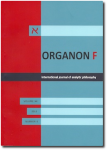Against Normative Judgement Internalism
Against Normative Judgement Internalism
Author(s): Miranda Del CorralSubject(s): Epistemology, Ethics / Practical Philosophy
Published by: Filozofický ústav SAV
Keywords: Akrasia; enkrasia; normative judgements; normative requirements; practical reasoning;
Summary/Abstract: Normative judgement internalism claims that enkrasia is an ideal of rational agency that poses a necessary link between making a normative judgement, and forming an intention to act according to that judgement. Against this view, I argue that enkrasia does not require the formation of new intentional states; instead, it requires that the agent’s intentions do not contravene her normative judgements. The main argument for considering that an intention ought to follow from a normative judgement is the claim that the conclusion of practical reasoning is an intention. I will argue that this account is mistaken: practical reasoning aims at justifying certain actions or intentions, and thus its conclusion is a normative judgement. Defenders of NJI might argue, though, that intentions ought to follow from our normative judgements, because of certain requirements affecting not only practical reasoning, but rational agency. I argue that this conception of enkrasia is too demanding. Enkrasia, I suggest, is better understood as a restriction over our intentions: they ought not enter into conflict with our judgements.
Journal: Organon F
- Issue Year: 20/2013
- Issue No: 4
- Page Range: 567-587
- Page Count: 21
- Language: English

